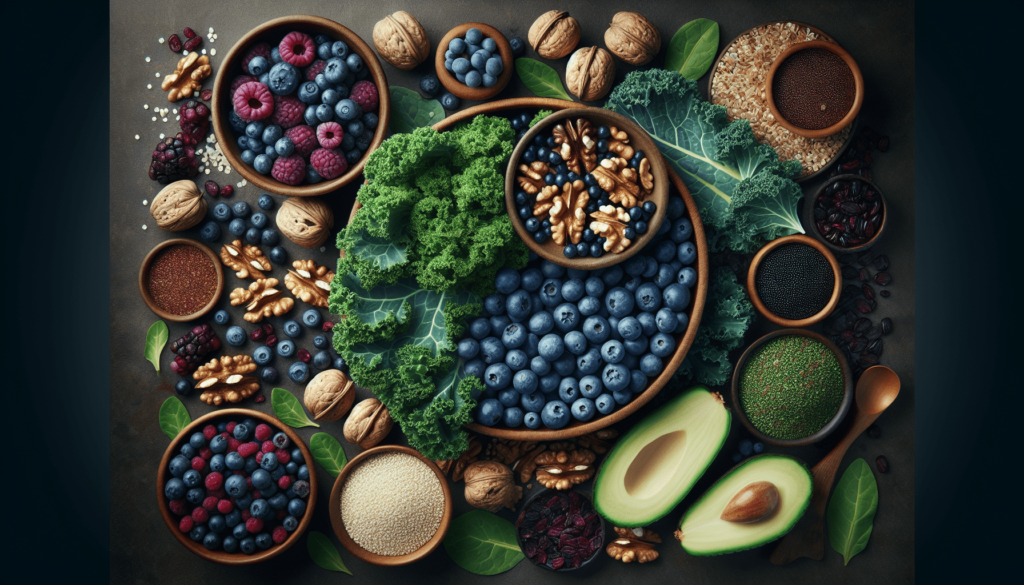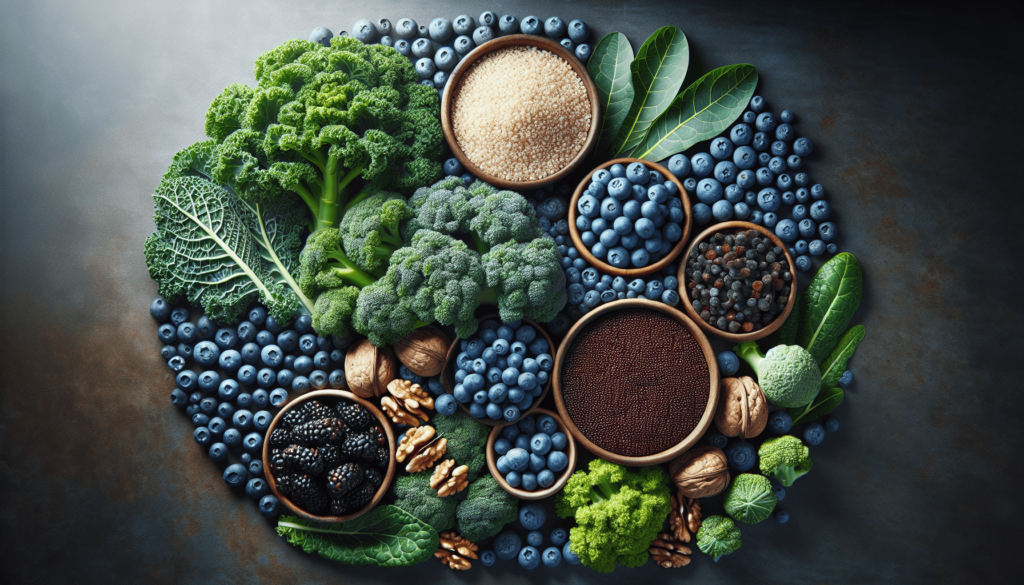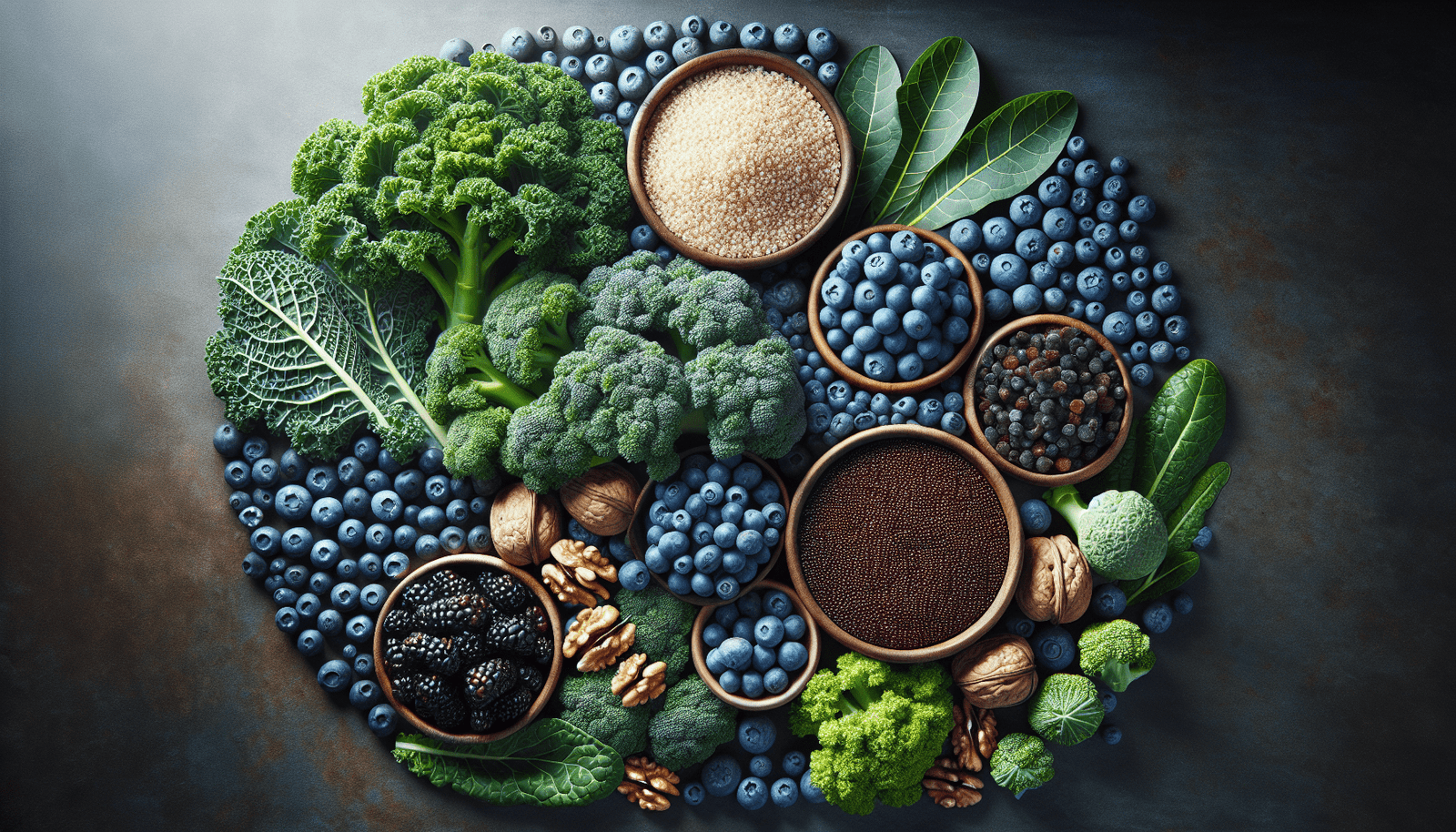Welcome to your guide on nutrient-dense foods! In this article, we will explore the importance of eating smarter, not harder when it comes to fueling your body with the essential nutrients it needs. Discover the top nutrient-dense foods that you should incorporate into your diet to optimize your health and well-being. By making informed choices and focusing on quality over quantity, you can nourish your body more effectively and achieve your wellness goals. Get ready to learn how to eat smarter and feel better than ever before! Have you ever wondered how you can improve your overall health and well-being by making simple changes to your diet? With so much information out there about what to eat and what not to eat, it can be overwhelming to know where to start. This guide to nutrient-dense foods is here to help you make smarter choices when it comes to fueling your body. By focusing on nutrient-dense foods, you can optimize your health and energy levels without feeling like you’re constantly depriving yourself. Let’s dive in and learn how to eat smarter, not harder.
What are Nutrient-Dense Foods?
When we talk about nutrient-dense foods, we’re referring to foods that are packed with essential nutrients like vitamins, minerals, fiber, and antioxidants, without a lot of added sugars, unhealthy fats, and empty calories. These foods are the building blocks of a healthy diet and provide your body with the fuel it needs to function at its best. By incorporating nutrient-dense foods into your meals and snacks, you can improve your overall health, boost your immune system, and even reduce your risk of chronic diseases.
Examples of Nutrient-Dense Foods
Some examples of nutrient-dense foods include:
-
Fruits and Vegetables: These colorful foods are rich in vitamins, minerals, and antioxidants that support your overall health. Aim to fill half your plate with fruits and vegetables at every meal.
-
Whole Grains: Whole grains like brown rice, quinoa, and oats are high in fiber and essential nutrients that can help you feel full and satisfied.
-
Lean Proteins: Foods like chicken, turkey, fish, tofu, and legumes are excellent sources of protein and essential amino acids that your body needs to function properly.
-
Healthy Fats: Nuts, seeds, avocados, and olive oil are examples of healthy fats that can support brain health, hormone production, and heart health.
By incorporating a variety of these foods into your diet, you can ensure that you’re getting a wide range of essential nutrients that your body needs to thrive.
Why Choose Nutrient-Dense Foods?
You might be wondering why it’s so important to prioritize nutrient-dense foods in your diet. The truth is, the foods you eat have a direct impact on your health and well-being. Choosing nutritious, whole foods over processed, unhealthy options can make a significant difference in how you feel physically and mentally. Here are a few reasons why you should choose nutrient-dense foods:
Better Energy Levels
Nutrient-dense foods provide your body with the fuel it needs to sustain energy levels throughout the day. Unlike sugary snacks and processed foods that can lead to energy crashes and fatigue, nutrient-dense foods help stabilize your blood sugar and keep you feeling energized and alert.
Improved Mood and Mental Clarity
Research has shown that your diet can have a direct impact on your mood and cognitive function. Nutrient-dense foods are rich in vitamins and minerals that support brain health and can help improve your mood, focus, and overall mental clarity.
Weight Management
When you focus on nutrient-dense foods, you’re more likely to feel satisfied and full, which can help prevent overeating and support healthy weight management. These foods are typically lower in calories and higher in fiber, which can help you feel full longer and reduce cravings for unhealthy foods.
Reduced Risk of Chronic Diseases
A diet rich in nutrient-dense foods has been linked to a lower risk of chronic diseases like heart disease, diabetes, and cancer. By prioritizing whole, unprocessed foods, you can reduce inflammation in the body, support your immune system, and promote overall health and longevity.
Better Digestive Health
Many nutrient-dense foods are high in fiber, which is essential for digestive health. Fiber helps support regular bowel movements, prevent constipation, and maintain a healthy gut microbiome. By including plenty of fruits, vegetables, whole grains, and legumes in your diet, you can support a healthy digestive system.
Choosing nutrient-dense foods isn’t just about counting calories or restricting certain food groups – it’s about nourishing your body with the nutrients it needs to thrive. By prioritizing these foods in your diet, you can experience a wide range of health benefits that can improve your quality of life.

How to Incorporate Nutrient-Dense Foods into Your Diet
Now that you understand the importance of nutrient-dense foods, you may be wondering how to incorporate them into your daily meals and snacks. The good news is that it doesn’t have to be complicated or time-consuming. With a few simple tips and tricks, you can easily boost the nutrient content of your diet and reap the benefits of a healthier lifestyle.
Plan Ahead
One of the best ways to ensure that you’re eating nutrient-dense foods is to plan your meals and snacks ahead of time. Take some time each week to create a meal plan, make a grocery list, and prep ingredients in advance. By having healthy options readily available, you’ll be less likely to reach for convenience foods that are low in nutrients.
Fill Half Your Plate with Fruits and Vegetables
A simple rule of thumb for building a nutrient-dense meal is to fill half your plate with fruits and vegetables. These foods are high in vitamins, minerals, and fiber, and can help you feel full and satisfied without a lot of calories. Aim to include a variety of colors and textures to ensure you’re getting a wide range of nutrients.
Choose Whole Grains Over Refined Grains
When it comes to grains, opt for whole grains like brown rice, quinoa, whole wheat pasta, and oats, instead of refined grains like white bread and white rice. Whole grains are higher in fiber and essential nutrients that can help support heart health, digestion, and weight management.
Include Lean Proteins at Every Meal
Protein is an essential macronutrient that your body needs to build and repair tissues, support immune function, and maintain muscle mass. Include lean proteins like chicken, turkey, fish, tofu, and legumes at every meal to ensure you’re getting an adequate amount of this nutrient.
Add Healthy Fats to Your Diet
Healthy fats are an important part of a balanced diet and are essential for brain health, hormone production, and heart health. Include foods like nuts, seeds, avocados, and olive oil in your meals and snacks to ensure you’re getting enough healthy fats in your diet.
Limit Added Sugars and Processed Foods
While it’s important to prioritize nutrient-dense foods, it’s also important to limit your intake of added sugars, unhealthy fats, and processed foods. These foods can contribute to inflammation in the body, weight gain, and an increased risk of chronic diseases. Instead, focus on whole, unprocessed foods that are rich in nutrients and support your overall health.
By following these simple tips, you can easily incorporate more nutrient-dense foods into your diet and improve your overall health and well-being. Remember, it’s all about making small, sustainable changes that can have a big impact on your health in the long run.
Tracking Your Nutrient Intake
If you’re looking to optimize your diet and ensure you’re getting all the essential nutrients your body needs, you may want to consider tracking your nutrient intake. This can help you identify any deficiencies or imbalances in your diet and make adjustments as needed. There are several tools and apps available that can help you track your nutrient intake and make informed choices about your diet.
Food Diary
Keeping a food diary can be a simple and effective way to track your nutrient intake and monitor your eating habits. Write down everything you eat and drink throughout the day, including portion sizes and any supplements you take. This can help you identify patterns, track your progress, and make adjustments to your diet as needed.
Nutrition Tracking Apps
Nutrition tracking apps like MyFitnessPal, Cronometer, and Lose It! can help you track your calorie intake, macronutrient ratios, and micronutrient levels. These apps allow you to input the foods you eat and provide detailed reports on your nutrient intake, making it easy to ensure you’re meeting your nutritional needs.
Consult a Registered Dietitian
If you’re struggling to meet your nutrient needs or have specific health concerns, consider consulting a registered dietitian for personalized nutrition advice. A dietitian can help you create a customized meal plan, track your progress, and provide recommendations for optimizing your diet based on your individual needs and goals.
By tracking your nutrient intake and making informed choices about your diet, you can ensure that you’re getting all the essential nutrients your body needs to function at its best. Remember, everyone’s nutritional needs are different, so it’s important to listen to your body and make adjustments as needed to support your overall health and well-being.

Conclusion
Choosing nutrient-dense foods is one of the best ways to support your overall health and well-being. By focusing on whole, unprocessed foods that are rich in essential nutrients, you can optimize your energy levels, improve your mood, and reduce your risk of chronic diseases. Remember, it’s all about making small, sustainable changes to your diet that can have a big impact on your health in the long run. By following the tips and strategies outlined in this guide, you can eat smarter, not harder, and nourish your body with the nutrients it needs to thrive. Here’s to a healthier, happier you!

